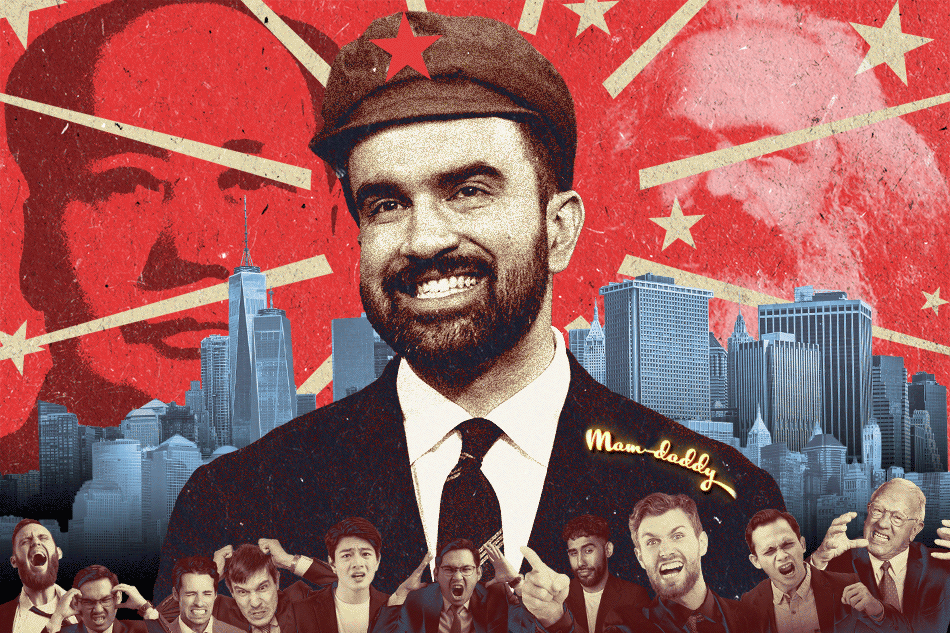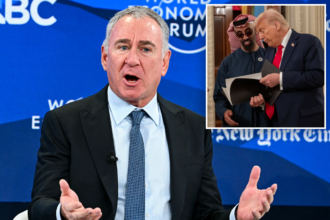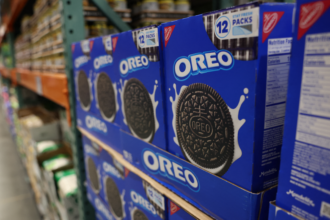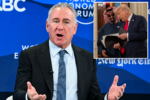Zohran Mamdani took an unprecedented beating during Wednesday night’s mayoral debate – but Wall Street is still bracing for the worst come Nov. 4, sources told On The Money.
The socialist firebrand got roasted by rivals Andrew Cuomo and Curtis Sliwa over everything from antisemitism to his pie-in-the-sky ideas about buses and the rent. The rivals also capitalized on Mamdani’s bizarre failure to take a position on key ballot initiatives – provoking groans from a TV audience.
Nevertheless, many of the city’s big business leaders skipped watching the debate altogether – fretting that it may be too little, too late to save the city from a Mamdani mayoralty.
“It helps Cuomo, but it doesn’t close a 10-point gap,” one well-placed Wall Streeter told The Post. “Unfortunately, we’re going to have a f–king Jew-hating socialist running this city barring a miracle.”
Assessing Cuomo’s manifold failures, the source added: “He’s just not likable; Sliwa is actually more likeable, but can’t win. It’s really sad.”
In other words, the CEOs of the city’s major financial companies have resigned themselves to “Maoist Mamdani.” Indeed, some say a self-proclaimed Marxist mayor won’t change the overall direction of the city beyond the socialism that rules it today.
They may have a point. New York City, once the financial capital of the world, is a shell of its former self: Endless tax increases, waves of migrants, lax policing and homelessness has been the rule, rather than the exception since the mayoralty of Bill di Blasio, who served two terms starting in 2013.
Eric Adams did little to change that descent into madness. As a result, Florida, Texas and even Utah have become new meccas for NYC’s once proud banking community, a massive out-migration of jobs and tax dollars.
Consider: There are now rival stock exchanges in Dallas and Miami. JPMorgan, the nation’s largest bank, has a new multi-billion office building in Midtown, but it also now has more employees in Texas than in and around its NYC headquarters.
Like many of the city’s biggest financial firms, JP Morgan has been shifting increasingly large swaths of its operation to venues where taxes are lower and criminals don’t benefit from bail reform and roam free.
It’s the reason why bank chiefs aren’t publicly freaking over a leftist like Mamdani running what is supposed to be the country’s epicenter of capitalism. They have less skin in the game. Rather, they’re calling Mamdani to offer support just as JPMorgan chief Jamie Dimon has done.
In other words: It doesn’t matter who is running the place, people at the big banks tell me.
“Either way, we’re going to be fine,” said one senior executive at a major bank. “Of course, we would like someone else, but he’s not going to do all that much damage.”
Yes, Mamdani wants businesses and the rich to pay higher taxes to finance everything from government-run grocers to free bus rides (which critics say will become mobile homeless shelters). But the 34-year-old state lawmaker, with no real resume other than a few years in politics and some time as a rapper, many bankers believe Mamdani is too inexperienced to get anything done.
Many have poured money into the campaign of Cuomo, who lost the Democratic primary to Mamdani and is now running as an independent. Cuomo blames GOP candidate Sliwa for siphoning votes as a “spoiler,” though polls show even in a two-way race Mamdani defeats Cuomo, albeit more narrowly.
Accordingly, bankers believe they might as well be nice to the next likely mayor. After all, they don’t have that much to lose – and he could possibly be bought like many other committed progressives.
The Partnership for New York City, run by long-time executive director Kathryn Wylde, has conducted a series of meet-and-greet sessions with Mamdani and its fat-cat membership.
Mike Bloomberg, the former mayor who runs the financial media and data company Bloomberg LP, has been among the participants, which is interesting given Mamdani’s criticisms of tough-on-crime policing that was a hallmark of the Bloomberg era.
“How bad can he be?” one city business executive said of Mamdani.
Whatever the answer is to that very good question, most on Wall Street are now betting that we’ll soon find out.










